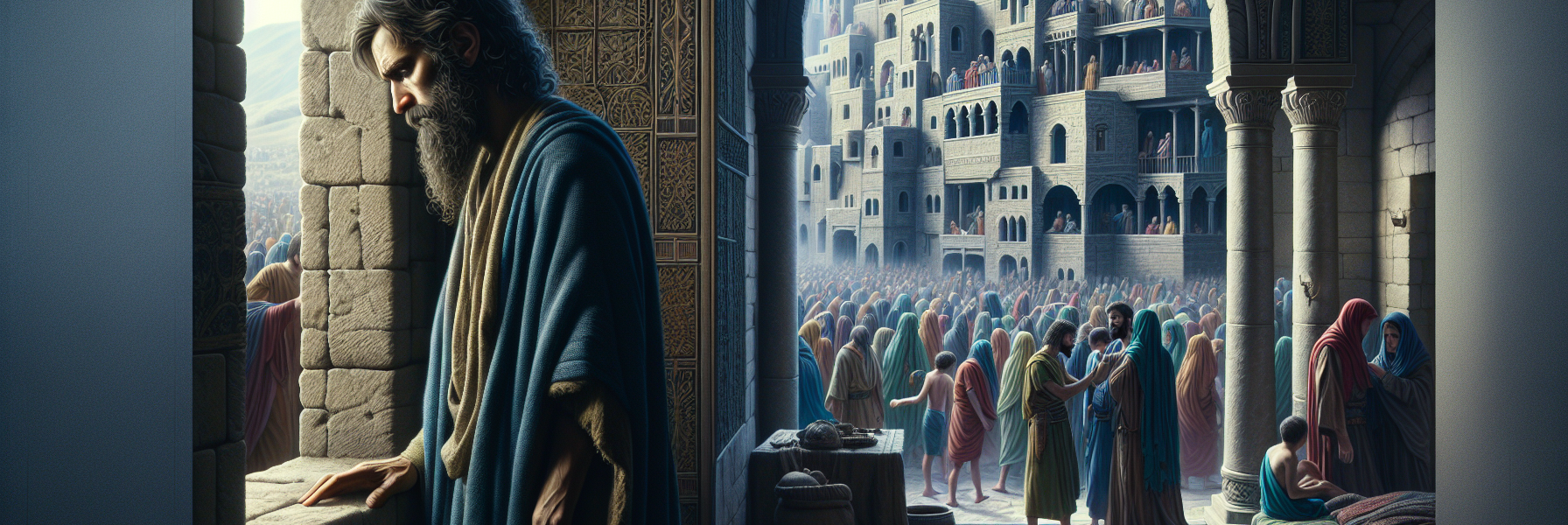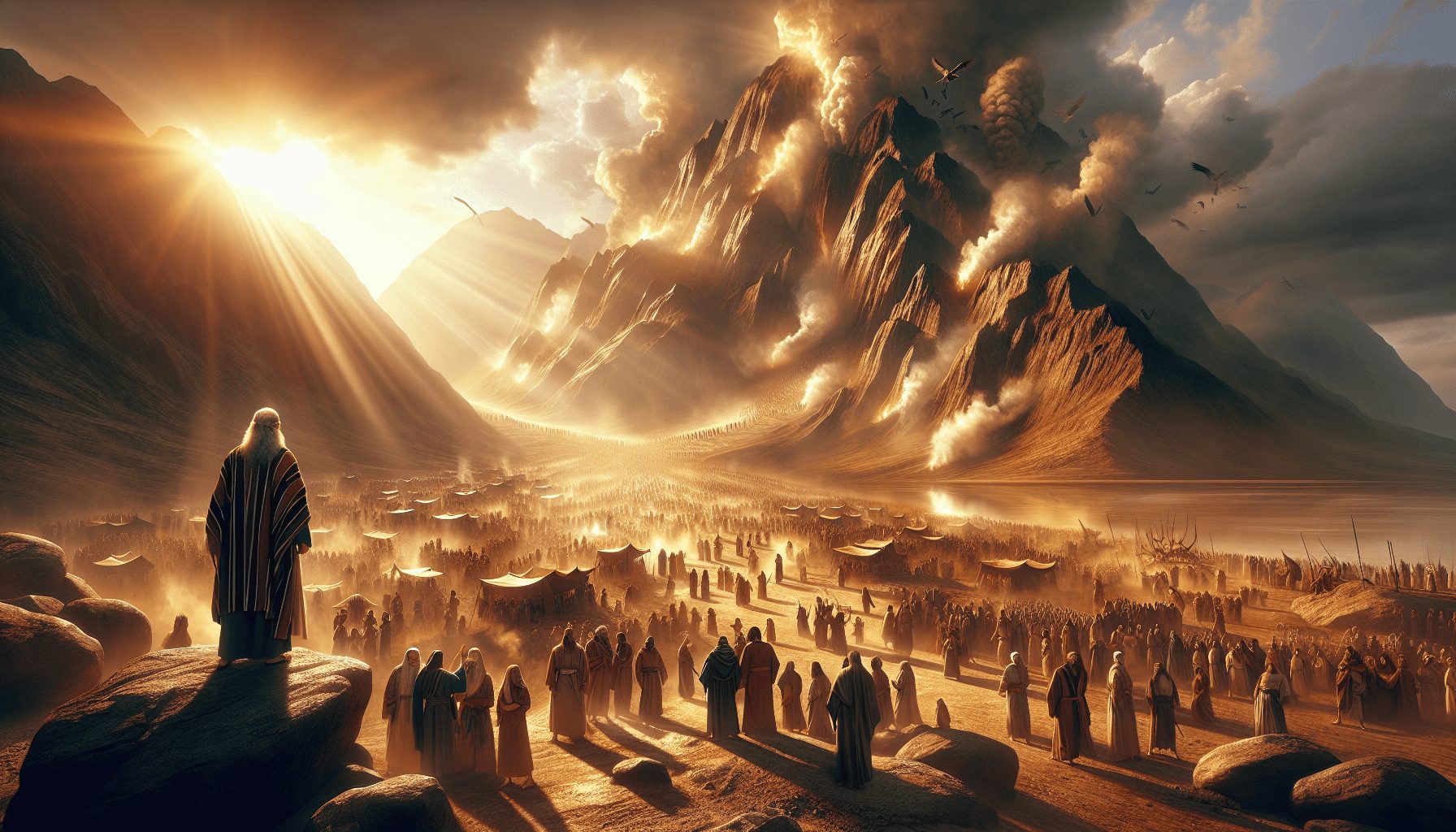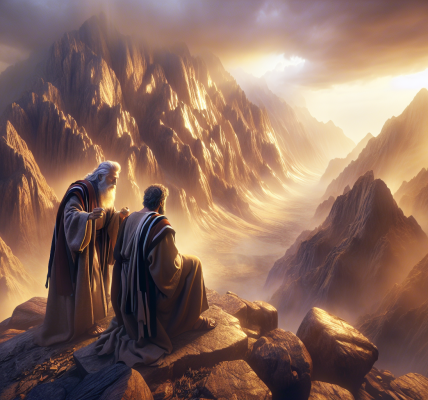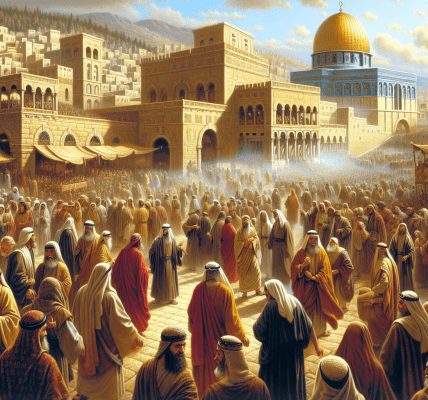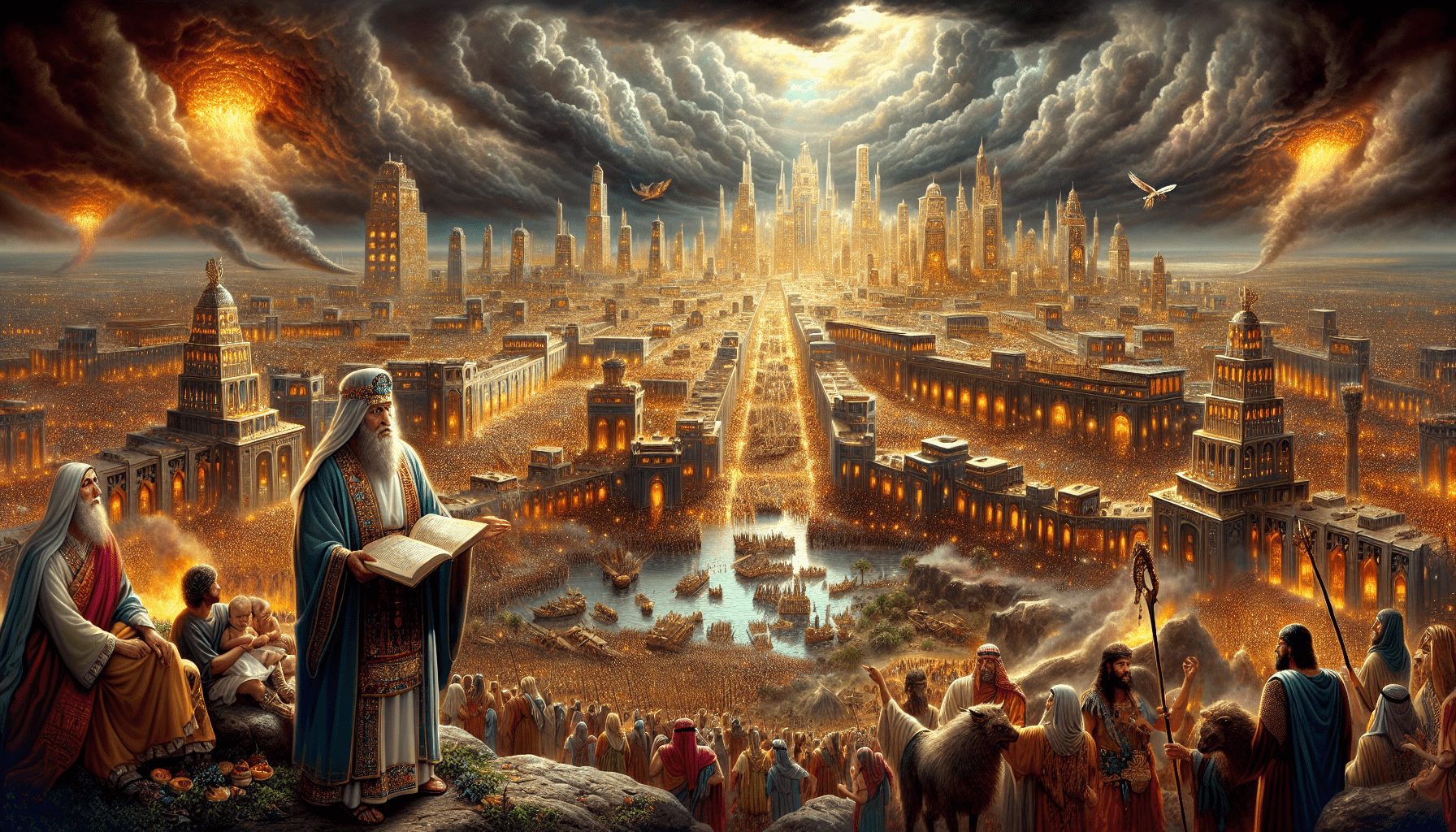**The Prophet’s Loneliness and the Coming Judgment**
The word of the Lord came to Jeremiah in the days when Judah stood on the brink of ruin. The people had turned away from their God, chasing after idols of wood and stone, defiling the land with their abominations. The Lord spoke to His prophet with a heavy heart, commanding him to walk a path of solitude and sorrow—a living symbol of the desolation that would soon engulf the nation.
### **A Life Set Apart**
“You shall not take a wife, nor shall you have sons or daughters in this place,” the Lord declared. Jeremiah stood in the quiet of his chamber, the weight of the command pressing upon him like a stone. Around him, the streets of Anathoth buzzed with life—young men laughing, brides adorned in fine garments, children playing in the sun. But he was to have none of it. No joyful wedding feast, no son to carry his name, no daughter to comfort his old age. His life would be a sign: in the days to come, the laughter of brides and grooms would be silenced.
The Lord continued, “For thus says the Lord concerning the sons and daughters who are born in this place, and concerning their mothers who bore them and their fathers who fathered them in this land: They shall die of deadly diseases. They shall not be lamented, nor shall they be buried. They shall be as dung on the surface of the ground.”
Jeremiah shuddered. No burial, no mourning—only the scavenging birds and beasts tearing at flesh left to rot under the sun. Such was the horror that awaited the people who had forsaken their God.
### **No Mourning, No Comfort**
Again, the Lord spoke: “You shall not go into the house of feasting to sit with them, to eat and drink.” The prophet’s heart ached. How often had he been invited to the gatherings of his kinsmen? The clinking of cups, the songs of merriment—all forbidden to him now. He was to be a man set apart, a living reminder that the time for feasting was over.
“For thus says the Lord of hosts, the God of Israel: Behold, I will silence in this place, before your eyes and in your days, the voice of mirth and the voice of gladness, the voice of the bridegroom and the voice of the bride.”
Jeremiah walked through the marketplace, his ears attuned to the sounds of life—the bartering of merchants, the chatter of women, the playful shouts of children. Soon, all would be still. The Babylonians would come with sword and flame, and the land would echo only with the wails of the dying.
### **The Depths of Their Sin**
The people, stubborn and unrepentant, dared to ask, “Why has the Lord pronounced all this great evil against us? What is our iniquity? What is the sin that we have committed against the Lord our God?”
The Lord’s answer was swift and terrible: “Because your fathers have forsaken Me, declares the Lord, and have gone after other gods and have served and worshiped them, and have forsaken Me and have not kept My law. And you have done worse than your fathers, for behold, every one of you follows his stubborn, evil will, refusing to listen to Me.”
Jeremiah lifted his eyes to the hills where the high places stood, littered with altars to Baal and Asherah. The stench of incense rose to the heavens—not as a sweet aroma, but as an abomination. The people had filled the land with innocent blood, sacrificing their own children in the fires of Molech. How could they now feign ignorance of their guilt?
### **A Future Hope Beyond Judgment**
Yet even in wrath, the Lord remembered mercy. He spoke of a day beyond the exile, a day of restoration: “Therefore, behold, the days are coming, declares the Lord, when it shall no longer be said, ‘As the Lord lives who brought up the people of Israel out of the land of Egypt,’ but ‘As the Lord lives who brought up the people of Israel out of the north country and out of all the countries where He had driven them.’ For I will bring them back to their own land that I gave to their fathers.”
Jeremiah’s heart stirred with hope. Though the storm of judgment was coming, it would not be the end. The Lord would gather His scattered flock, not because of their righteousness, but because of His steadfast love.
### **The Certainty of God’s Judgment**
But first, the reckoning would come. The Lord declared, “Behold, I am sending for many fishers, declares the Lord, and they shall catch them. And afterward I will send for many hunters, and they shall hunt them from every mountain and every hill, and out of the clefts of the rocks.”
No hiding place would remain. The Babylonians, like hunters tracking prey, would flush the people from their strongholds. The proud and the mighty would be dragged away in chains, their wealth plundered, their cities reduced to rubble.
Jeremiah bowed his head. The word of the Lord was sure. Judgment would fall. But even in the darkest hour, the promise of return shone like a distant star—a reminder that the Lord’s purposes, though severe, were never without hope.
And so the prophet walked alone, a living testimony of the sorrow to come, yet bearing within his heart the unshakable promise of redemption.
